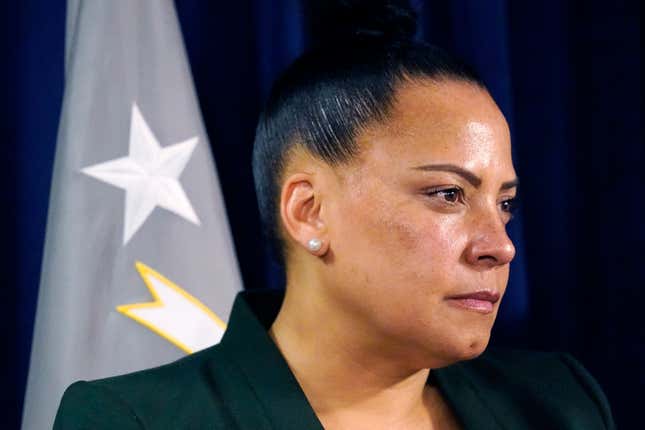
The feds are targeting yet another U.S. police department with an investigation into whether it systemically discriminates against the people it’s sworn to protect on the basis of race and gender.
This time it’s the Worcester Police Department in central Massachusetts in the crosshairs of a so-called “pattern or practice” investigation under the U.S. Department of Justice’s Civil Rights Division.
Worcester (pronounced “Woo-Stuh” if you’re a native New Englander), is a city of about 200,000 people situated along the Massachusetts Turnpike about an hour west of Boston. Despite being a third the size of its neighbor to the east, Worcester’s population skews significantly whiter at 67.7% white and 13 percent Black; Boston is 52.1 percent white and about a quarter Black.
It’s unclear whether a specific incident, or group of incidents, led to the investigation. In a statement, the DOJ said only that it was conducting the probe, ironically, under the Violent Crime Control and Law Enforcement Act of 1994. Better known colloquially as the “crime bill,” this legislation has been generally blamed for contributing to mass incarceration and law enforcement excesses, but it also allows the feds to use civil lawsuits to force law enforcement to address systemic bias in policing.
“The purpose of this civil investigation is to determine – through objective and thorough examination – whether or not there is an overall pattern or practice of conduct that violates the Constitution or federal law,” Rachael S. Rollins, the U.S. Attorney for the District of Massachusetts, said in the statement. “This is the beginning of the process. We will go where the facts take us. You will hear from me at the end of the investigation, irrespective of outcome.”
Rollins was confirmed as the first Black U.S. attorney for Massachusetts back in January. The Worcester investigation is the second in the state over the last four years. The DOJ opened a similar investigation into the Springfield Police Department in 2018, which was settled by a consent decree earlier this year.

